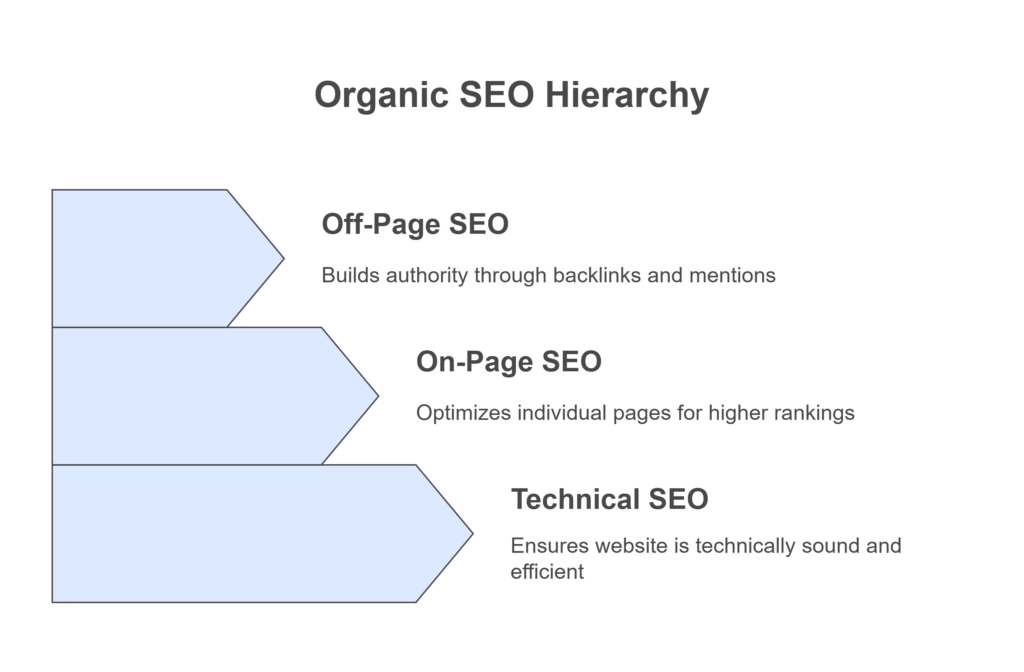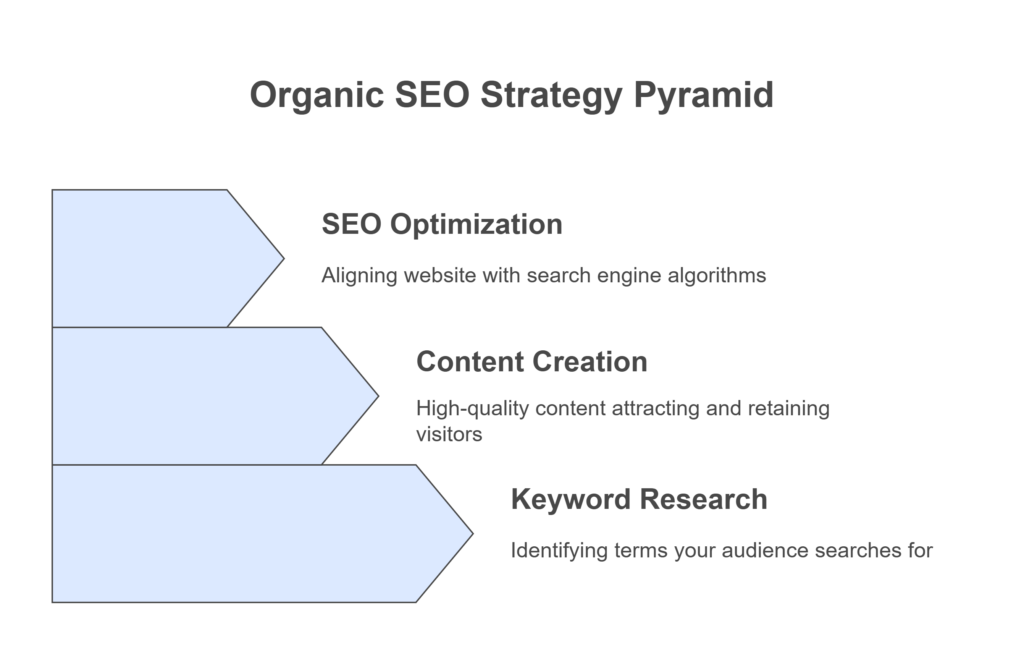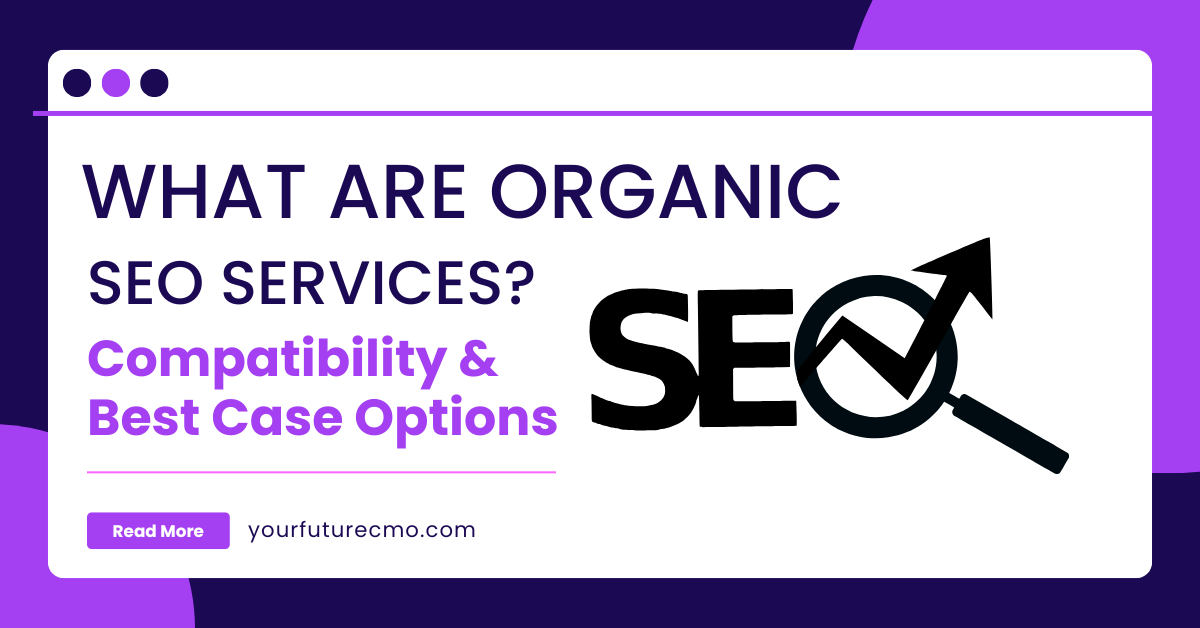- March 18, 2025
- by usmanali09132@gmail.com
- Uncategorized
- 0 Comments
Organic SEO services are the backbone of any successful digital marketing strategy. They focus on improving a website’s visibility in search engine results pages (SERPs) without relying on paid advertisements. Unlike paid search, organic SEO is a long-term strategy that builds credibility, drives sustainable traffic, and enhances user experience. In this article, we’ll explore what organic SEO services are, their compatibility with different business models, and the best-case options for maximizing their effectiveness.
What Are Organic SEO Services?
Organic SEO services are strategies and techniques used to optimize a website so it ranks higher in search engines like Google, Bing, and Yahoo. These services aim to improve a site’s relevance and authority by focusing on factors like keyword optimization, content quality, backlinks, and technical SEO.
The Core Components of Organic SEO Services
Organic SEO services are built on three main pillars: on-page SEO, off-page SEO, and technical SEO.
- On-Page SEO: This involves optimizing individual web pages to rank higher. It includes keyword research, meta tags, headers, and content optimization. For a deeper dive into this topic, check out our guide on Step by Step Guide on Optimizing Blog Posts.
- Off-Page SEO: This focuses on building authority through backlinks, social signals, and brand mentions.
- Technical SEO: This ensures the website is technically sound, with fast loading speeds, mobile-friendliness, and proper indexing. Learn more about this in our detailed page on Technical SEO.

Why Organic SEO Services Matter
Organic SEO services are essential because they drive free, sustainable traffic to your website. According to a study by BrightEdge, organic search drives 53% of all website traffic. Unlike paid ads, organic traffic doesn’t require continuous investment, making it a cost-effective solution for businesses of all sizes.
How Organic SEO Services Work
Organic SEO services work by aligning your website with search engine algorithms. These algorithms prioritize websites that offer value to users, are easy to navigate, and are authoritative in their niche.
Keyword Research and Optimization
Keyword research is the foundation of organic SEO. It involves identifying the terms and phrases your target audience is searching for. Once identified, these keywords are strategically placed in your content, meta descriptions, and headers to improve relevance.
- Long-Tail Keywords: These are specific phrases that have lower competition but higher conversion rates. For example, “best organic SEO services for small businesses” is a long-tail keyword.
- LSI Keywords: Latent Semantic Indexing (LSI) keywords are related terms that help search engines understand the context of your content. For example, if your main keyword is “organic SEO services,” LSI keywords might include “SEO strategies” or “search engine optimization.”
For a step-by-step guide on optimizing your content, read our blog on Step by Step Guide on Optimizing Blog Posts.

Content Creation and Optimization
High-quality content is the backbone of organic SEO. It not only attracts visitors but also encourages them to stay longer on your site, reducing bounce rates.
- Blog Posts: Regularly publishing blog posts on relevant topics helps establish your authority.
- Evergreen Content: This is content that remains relevant over time, such as “How to Start an SEO Campaign.”
Compatibility of Organic SEO Services with Different Business Models
Organic SEO services are versatile and can be tailored to suit various business models, from e-commerce to local businesses.
E-Commerce Businesses
For e-commerce businesses, organic SEO services focus on optimizing product pages, improving site speed, and building backlinks.
- Product Descriptions: Unique and keyword-rich product descriptions help improve rankings.
- Category Pages: Optimizing category pages with relevant keywords can drive more traffic.
If you’re running an online store, explore our specialized page on E-Commerce SEO for tailored strategies.
Local Businesses
Local businesses benefit from organic SEO by targeting location-based keywords and optimizing Google My Business profiles.
- Local Keywords: Phrases like “organic SEO services in New York” help attract local customers.
- Reviews and Ratings: Positive reviews improve local rankings and build trust.
For more insights, visit our dedicated page on Local SEO.
B2B Companies
B2B companies use organic SEO to generate leads and establish thought leadership.
- Whitepapers and Case Studies: These help demonstrate expertise and attract high-quality leads.
- Industry-Specific Keywords: Targeting niche keywords helps reach the right audience.
Best Case Options for Organic SEO Services
Choosing the right organic SEO services depends on your business goals, budget, and industry. Here are some best-case options:
DIY SEO Tools
For small businesses with limited budgets, DIY SEO tools like SEMrush, Ahrefs, and Moz can be a good starting point.
- Pros: Cost-effective, easy to use, and provides actionable insights.
- Cons: Requires time and effort to learn and implement.
Hiring an SEO Agency
For businesses looking for comprehensive solutions, hiring an SEO agency is the best option.
- Pros: Expertise, time-saving, and tailored strategies.
- Cons: Can be expensive, especially for small businesses.
If you’re considering outsourcing, our White Label SEO services might be the perfect fit.
Freelance SEO Experts
Freelancers offer a middle ground between DIY tools and agencies.
- Pros: Affordable, flexible, and personalized service.
- Cons: Quality can vary, and reliability may be an issue.
Benefits of Organic SEO Services
Organic SEO services offer numerous benefits that go beyond just improving rankings.
Increased Website Traffic
By optimizing your website for relevant keywords, you can attract more visitors from search engines.
- Stat: Websites on the first page of Google receive 71% of search traffic clicks.
Higher ROI
Organic SEO delivers a higher return on investment compared to paid ads.
- Fact: Organic search drives 20x more traffic than paid search.
Improved User Experience
SEO improvements like faster loading speeds and mobile optimization enhance user experience, leading to higher engagement.
For more on how website speed impacts SEO, check out our blog on How Website Speed Affects SEO Rankings.
Challenges of Organic SEO Services
While organic SEO offers many benefits, it also comes with challenges.
Time-Consuming
Organic SEO is a long-term strategy that requires patience and consistent effort.
- Tip: Set realistic expectations and focus on gradual improvements.
Algorithm Changes
Search engine algorithms are constantly evolving, making it challenging to stay ahead.
- Solution: Stay updated with industry trends and adapt your strategies accordingly.
What is the difference between organic SEO and paid SEO?
Organic SEO focuses on improving your website’s rankings through natural methods like content optimization and backlinks. Paid SEO, on the other hand, involves paying for ads to appear at the top of search results.
How long does it take to see results from organic SEO?
Organic SEO is a long-term strategy, and it typically takes 3-6 months to see noticeable results. However, the timeline can vary depending on factors like competition and the quality of your SEO efforts.
Can small businesses benefit from organic SEO services?
Yes, small businesses can greatly benefit from organic SEO services. By targeting niche keywords and optimizing their websites, small businesses can compete with larger companies and attract local customers. For more tailored strategies, explore our Small Business SEO page.
By understanding what organic SEO services are and how they work, businesses can make informed decisions to improve their online presence. Whether you’re a small business owner or a large enterprise, organic SEO offers a cost-effective way to drive traffic, generate leads, and grow your brand. For platform-specific strategies, such as Shopify or WordPress, visit our pages on Shopify SEO and WordPress SEO.




